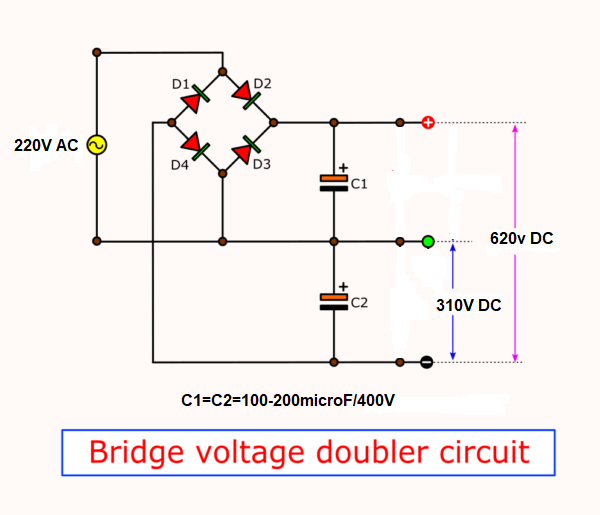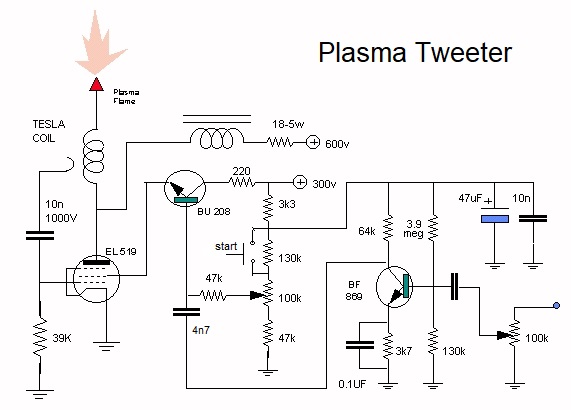This project describes the making of an unusual tweeter speaker that is much appreciated in the high-end audio class.
This time I will show you how to make a Plasma Tweeter. In some of my previous videos you could see an audio modulated Tesla coil in which also the input audio signal is modulated and the spark reproduces this input signal as a standard speaker. However, the sound quality is desperate and there can be no question of any use in audio systems.
The video above describes the making of an unusual tweeter that is much appreciated in the high-end audio class. The cost of a pair of such speakers is in the range of several thousand dollars. The principle of operation is very simple: It is a modulated RF power amp with a controlled ionic discharge. By modulating the oscillator with the audio signal the flame size changed and so the air pressure also changed. The idea for making as well as the schematic and instructions are taken from the site of Urlich Haumann who first build a prototype and is the world leader in DIY making such speakers.
And now a few words about how it works. It is a modulated RF power amp with a controlled ionic discharge. The output consists of a vacuum tube, a working coil, and 100 micro Henry 1 Ampere anode choke which is made as follows: Approx. 2.80 m of enamelled copper wire with 0.9 mm wire thickness is wound on a bobbin with an 18 mm diameter turn on turn. Working ciol consist 15 turns of isolated copper wire on a ceramic body with 35mm diameter, aprox. 70 mm long. At the bottom end of the electrode we need a "free air" 1 turn for the feedback to the grid of the tube with same wire. In the original design, the vacuum tube was EL519 but in my case I used PL504 and 6П42С, which are mutually pin compatible. Of course you should pay attention to the heating voltage of the tube. The 100k pot. on the Bu 508 base set the bias current of the vacuum tube and thus the flame size. BF869 is high frequency transistor and it is a modulation amplifier. With this potentiometer we can adjust input signal wich is galvanicly insulated with two audio trafos. Also the whole device is powered by 220V AC line but through an 220/220v isolating transformer with a power of several hundred watts. Some comment for working. Flame size depend on how good is the tube. The flame does not start itself ! It needs a little help. Put the pot. for flame size in middle position. Turn the power on. Wait two minutes until the tube is ready. You have to put a little isolated ! screwdriver trough the hole to the electrode and pull it slowly back. A ionic discharge between electrode and screwdriver will happen. If you pull back the screwdriver completely the discharge will be established between electrode and the air.
The disadvantage of this tweeter is its efficiency. Without a horn attachment you will not get beyond 82-85 db sound pressure. However, this is enough for quality listening to audio material with a few watts to ten watts Power Amplifier.
And now a few words about the sound. It is crystal clear without any audible distortions, and according to the author's measurements the amplitude-frequency characteristic is almost linear from 7KHz up to 20KHz. You hear the sound directly through the air without modulating a diaphragm. So there are no moving parts, no distortion and none of the problems other tweeters have.
This device work with high Voltage and high power RF in the area of 27 MHz. This can be dangerous to your health. It is recommended to use metal chassis for shielding because this is a strong transmitter and be careful with the plasma flame. The flame is very hot. This publication is for private use only. Building and using of the plasmatweeter is at your own risk. I am not responsible for doing something stupid after reading this text.






